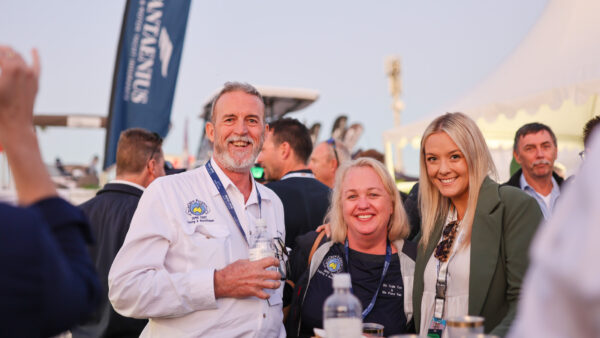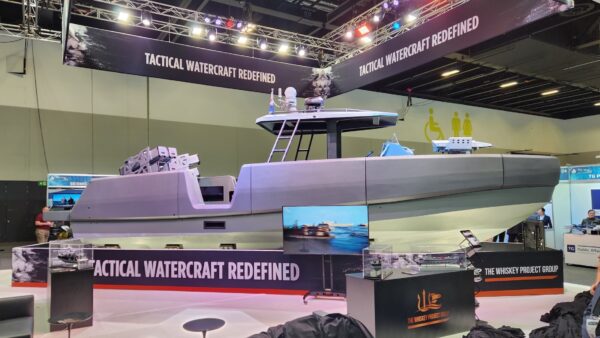Baird Magazine Editorial
Reproducing editorials from Work Boat World and Ausmarine.
By Neil Baird, Editor-in-Chief, Baird Publications.
For many years the conventional wisdom has been that industry, in the widest possible sense of that word, has been busily destroying the marine environment. While there have been some notable industrial polluters and plunderers, most rational people understand that businesses are not logically likely to foul their own nests.
Indeed, despite the ‘Exxon Valdez’, the BP Gulf of Mexico blowout and any number of examples of ship groundings, oil spills, shark-finning, and illegal or un-regulated over-fishing, the vast majority of participants in the wider maritime industry are good corporate citizens. In general, the “good guys” suffer from an unfair press. We all suffer from the highly publicised activities of a renegade few.
Fortunately, there have been some who have stood up to this onslaught of unjustified blame and criticism. A notable example is the group of Greek shipowners who were being very unfairly blamed for most of the pollution in the Aegean Sea in the early 1980s.
Those owners were realistic enough to know that, while they were not completely blameless, they were a long way from being completely guilty. So much so, that they commissioned a couple of Athenian universities to carefully study the pollution in the Aegean and to determine its source.
Well, obviously, as something like 90 per cent of Greek ships never entered the Aegean, they were unlikely to be very responsible for the garbage and other pollutants. Indeed, the university surveys found that more than 90 per cent of the pollutants were land sourced. Plastic bottles, flip-flops, cigarette butts, foam packaging, sump oil, farm chemicals, fertilisers and animal faeces were the main culprits.
The Greek shipowners devised an innovative and effective response to this. Instead of the usual “we’re innocent” advertising campaign of most unfairly maligned industries, they decided to do something positive to solve the problem and restore their reputation.
They initiated and funded a long term education programme aimed at eight to fourteen year old school children with the aim of improving their habits and, importantly, through them, the even worse polluting habits of their parents. Thus was the Hellenic Marine Environment Protection Association (HELMEPA) born.
HELMEPA was impressively effective and the Aegean is now remarkably clean. Its success inspired the establishment of TURMEPA in Turkey, CYMEPA in Cyprus, AUSMEPA in Australia – of which I was a founder and past chairman, I’m proud to note, NAMEPA in North America, and a number of others around the world. To varying degrees they have all contributed to a significant reduction in the amount of muck in the oceans. It is very important to emphasise, though, that all the MEPAs have been inspired, led and funded by companies in the maritime industry.
Industry, thus, can be and is significantly and effectively involved in cleaning our seas. It can and is starting to do much more. That is why I am pleased and proud to have chaired the organising committee of the third Sustainable Ocean Summit (SOS) that was held in Singapore in November. Organised by the over-worked and under-paid but brilliant and tiny executive team of the World Ocean Council, supported by a highly effective group of interns and volunteers, the conference was, even if I say so myself, an outstanding success.
Above all, it showcased the maritime industry’s intentions and capabilities with respect to cleaning the world’s seas, keeping them clean and ensuring that, long term, all the ocean industries are completely sustainable. It showed that the wider marine industry can and desires to work with governments and rational green groups to achieve those objectives.
Many of the world’s leading and largest, as well as a few of the smallest, maritime companies are members and supporters of the World Ocean Council (WOC). Most of those, along with many non-member organisations, participated very positively and co-operatively in the SOS.
Considering the disparate backgrounds, nationalities and professions or careers of the more than 300 delegates and speakers, the degree of that positivity and co-operation was heart-warming and inspiring. I came away thinking there is hope for humanity, our planet and, most importantly, our oceans.
The only problem with the SOS was that it was too short. It was necessary to run a series of parallel conference sessions so that a number of fascinating presentations regrettably had to be missed. That problem should be reduced, to some degree, by increasing the frequency of the conferences from biennial to annual. The WOC board, of which I am a member, has decided that the next SOS will be held in Rotterdam in early November 2016.
Given the successes of the second and third SOSs that I participated in, I am confident that the fourth will very good. It will make a difference and have a big impact on the future sustainability of our seas. To learn more, keep following www.oceancouncil.org.
Source; Baird Marine


